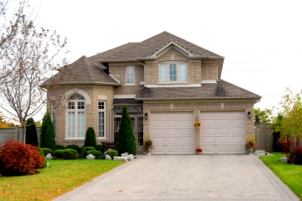Can I Refinance an Investment Property with HARP?
By Liz Clinger Updated on 12/22/2014 To dispel any confusion, this article will examine the main myths of the Freddie Mac HARP refinance that prevent borrowers from being able to obtain a HARP refinance on investment properties. But first, it's imperative to understand that HARP refinancing on an investment property through Fannie Mae tends to be much simpler and less complicated than doing so through Freddie Mac. This boils down to the concept of same-servicer HARP versus open-access HARP.
To dispel any confusion, this article will examine the main myths of the Freddie Mac HARP refinance that prevent borrowers from being able to obtain a HARP refinance on investment properties. But first, it's imperative to understand that HARP refinancing on an investment property through Fannie Mae tends to be much simpler and less complicated than doing so through Freddie Mac. This boils down to the concept of same-servicer HARP versus open-access HARP.
Same-Servicer Versus Open Access HARP
Freddie Mac utilizes two unique HARP programs with differing HARP requirements which can create some confusion for potential borrowers on their investment property. The Same-Servicer HARP loan is a version of HARP that can only be obtained through a borrower’s current lender, while the Open-Access HARP loan allows borrowers to refinance their investment property through HARP with any lender, regardless of whether or not they currently service the mortgage. As a result of these two programs and their differing functions, many borrowers may be rejected for loan applications which they may otherwise be able to obtain approval.
Common HARP Obstacles for Investment Properties
HARP is only for owner-occupied properties.
Out of all the HARP program facets that impede borrowers, this pitfall is perhaps the most common. While many borrowers will be denied on HARP applications for investment properties on this basis, the guidelines of HARP do not prohibit these refinances. Rather, lenders frequently impose their own restrictions to the HARP program, and many do not allow HARP refinances for rental properties.
Many homeowners typically attempt to secure a HARP loan through their current lender. However, the Same-Servicer Freddie Mac HARP program prohibits any change of occupancy for the property, meaning that homes that were originally purchased as owner-occupied properties cannot later be converted to rental properties and refinanced. For Freddie Mac HARP loans, borrowers can only refinance investment properties through HARP with the Open-Access HARP, which does not carry these occupancy restrictions and allows for changes in occupancy.
The maximum eligible LTV for HARP refinances is 125%.
Technically, this is obstacle is now a myth, as the HARP requirements have been updated and all loan-to-value caps have been removed. However, HARP loan-to-value still presents a challenge to many prospective HARP borrowers, especially those attempting to refinance investment properties. Essentially, borrowers who obtain a HARP refinance through a new lender must submit their application for examination through an Automatic Underwriting System. Freddie Mac’s system, referred to as Loan Prospector (LP), frequently denies loan applications for HARP refinances on investment properties with LTV ratios greater than 105%, despite HARP’s lack of restrictions in this category. While Fannie Mae underwriting may be more lenient, Freddie Mac’s Loan Prospector may be a tricky obstacle for many potential HARP borrowers.
My lender refused my application due to my Debt to Income (DTI).
This obstacle solely applies to borrowers using the Freddie Mac Open-Access refinance program, as the Same-Servicer program does not consider borrower debt-to-income ratio when determining HARP approval.
Due to the unique procedures and considerations for rental properties, borrowers should note that not all loan officers will be able to calculate borrower debt-to-income ratio accurately. Accordingly, borrowers should take into consideration a loan officer’s experience with investment loans or complex tax returns, as such experience is necessary when hoping to refinance an investment property through HARP. Particularly, if your loan officer candidate does not request your lease agreement, monthly mortgage statement and tax returns on the first meeting, you may consider looking for alternatives. When computed accurately, debt-to-income rarely impedes rental property HARP refinance, even for properties which take a minor rental loss each month.
My lender denied my application due to lack of assets.
As with the previous obstacle, this entry only affects borrowers who apply for Open-Access refinances, in which case Freddie Mac’s Loan Prospector will require a minimum of 6 months of payment in savings for rental property refinances. Consequently, borrowers must present proof of assets upon application.
HARP refinances require an appraisal.
While more of a myth than an obstacle, HARP only requires appraisals under certain circumstances, and many borrowers can obtain HARP appraisal waivers. Borrowers attempting a HARP investment property refinance with a Same-Servicer HARP loan may not face this requirement, although those changing occupancy with a Freddie Mac Open-Access refinance will always need to perform an appraisal. In addition, the cost for appraisals on rental properties includes a rent schedule, making these appraisals more expensive than traditional ones.
I cannot have more than 4 properties financing with HARP.
Borrowers performing a Freddie Mac Same-Servicer refinance will not be restricted in terms of how many properties may be financed; however, the Open-Access program limits this to four properties. Accordingly, borrowers refinancing through a Freddie Mac HARP loan can only do so if the property was originally financed as a rental property and the borrower secures a Same-Servicer HARP refinance with no change in occupancy.

Didn't find the answer you wanted? Ask one of your own.
-
 HARP 2.0 Requirements
View More
HARP 2.0 Requirements
View More
-
 Analyzing HARP Market Interest Rates
View More
Analyzing HARP Market Interest Rates
View More
-
 What Banks Will Give Me a HARP 2.0 Refinance Loan?
View More
What Banks Will Give Me a HARP 2.0 Refinance Loan?
View More
-
 How to Overcome HARP Refinance Qualification Obstacles
View More
How to Overcome HARP Refinance Qualification Obstacles
View More
-
 HARP 2.0 Appraisal
View More
HARP 2.0 Appraisal
View More
-
 What Do I Need for a HARP Application?
View More
What Do I Need for a HARP Application?
View More
-
 What is the HARP 3 Refinance?
View More
What is the HARP 3 Refinance?
View More
-
 What Are Some of the HARP 2.0 Limitations?
View More
What Are Some of the HARP 2.0 Limitations?
View More
-
 HARP 2.0 FAQ
View More
HARP 2.0 FAQ
View More
-
 HARP 2.0 Eligibility and Qualifications
View More
HARP 2.0 Eligibility and Qualifications
View More
Related Articles
Ask our community a question.
Searching Today's Rates...

Featured Lenders
Kat Whitman
Whitman Met, Inc.
Sacramento, CA
Cameron Burke
Vision One Mortgage
Huntington Beach, CA
Lisa Stepp
RBS Citizens
Clifton Park, NY

